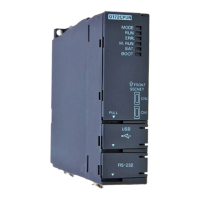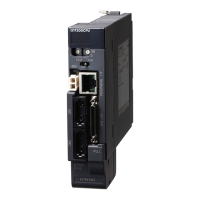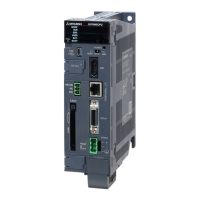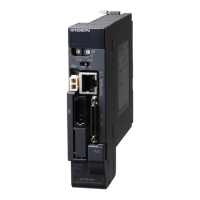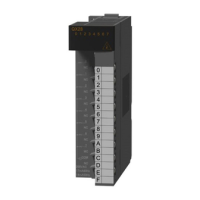16
TROUBLESHOOTING
16.6 Diagnostics and Restoration of the Standard RAM, Standard ROM, and CompactFlash Card Drives
16 - 92
9
DEVICE DESCRIPTION
10
MULTIPLE CPU SYSTEM
OVERVIEW
11
MULTIPLE CPU SYSTEM
CONFIGURATION
12
CONCEPT OF MULTIPLE
CPU SYSTEM
13
COMMUNICATIONS
BETWEEN CPU
MODULES
14
PARAMETERS ADDED
FOR MULTIPLE CPU
SYSTEMS
15
STARTING A MULTIPLE
CPU SYSTEM
16
TROUBLESHOOTING
(2) How to restore the FAT file system of the drive
If an error is detected in the file system, the FAT format can be restored by either of
the following methods.
• Use the restore function of the chkdsk command ( (3) in this section)
• Reformat by using the format command ( Page 6-85, Section 6.10.2)
If the file system is not restored or the standard RAM drive and standard ROM drive
cannot be formatted by either of the above methods, please consult your local
Mitsubishi service center or representative, explaining the details of the problem.
1. During restoring the FAT file system, the stored file may be erased and some
of them may be corrupted.
Back up the necessary program files and data before restoration, and write
the backed up files and data again after restoration.
2. When the file system restoration has been performed for the standard RAM or
standard ROM, write parameters by using C Controller setting utility.
(3) chkdsk command
The following describes the chkdsk command of VxWorks.
(a) Format of the chkdsk command
chkdsk, "Device name", and Flag
(b) Execution format of the chkdsk command
Execute the chkdsk command in the format where the task is started by the sp
command.
sp(chkdsk, "Device name", Flag) [Enter]
Execute the chkdsk command from either of the following tools.
• Workbench Shell or Tornado Shell
• Telnet
Table 16.21 Input values and settings of the chkdsk command
Argument Input value Setting
Device name
/RAM Standard RAM
/ROM Standard ROM
/CF CompactFlash card
Flag
1 Diagnostics
2 Restoration

